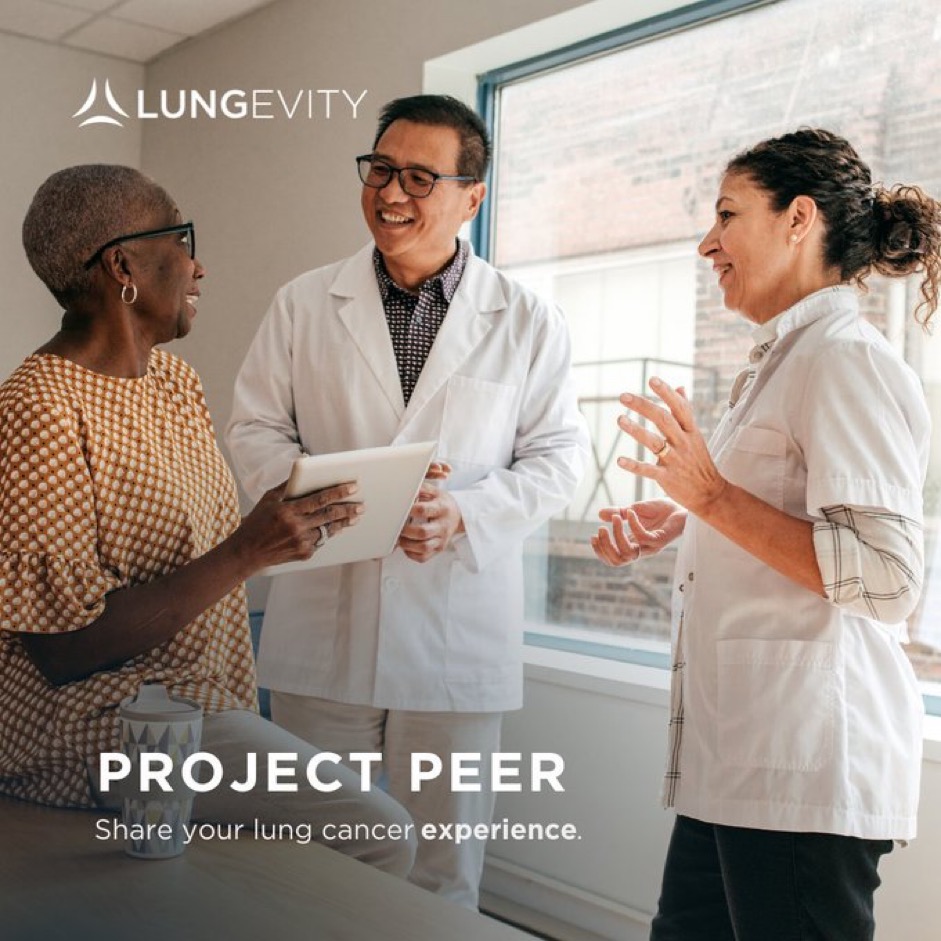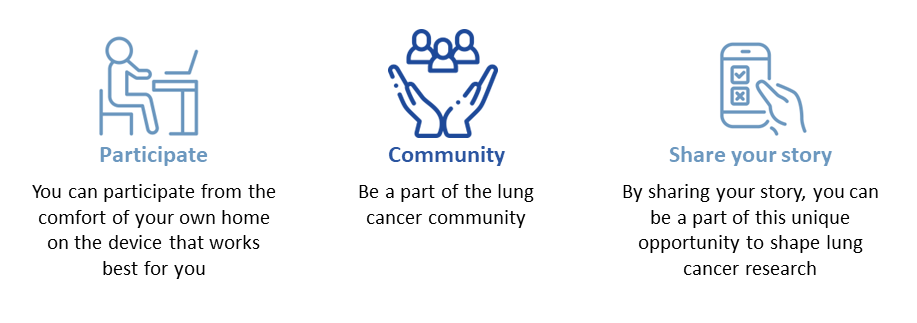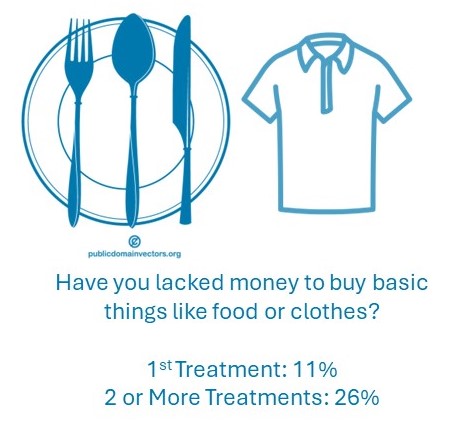This is a guest blog post by a citizen science project leader.
Have you been diagnosed with lung cancer? Or are you a family member or friend of someone who has been diagnosed?
Then we – the LUNGevity Foundation – would like to invite you to join our new study: Project PEER. By getting involved, you can help healthcare providers and researchers understand what YOUR experience with lung cancer is like, in order to fight for better quality of life for lung cancer patients.

You can help us better understand the many issues that people living with lung cancer face by answering our questions about how you access care. Most people don’t know that lung cancer is the deadliest cancer worldwide. It causes nearly 25% of all cancer deaths.
Yet, lung cancer receives just a fraction of the funding for research that breast cancer receives. There is less funding in part because of the stigma that comes with a diagnosis of lung cancer.
But the reality is that anyone with lungs can get lung cancer, and that tobacco companies deliberately produced and marketed and continue selling a highly addictive product.
Because lung cancer impacts so many peoples’ lives, we have partnered up with SciStarter to increase awareness of our online study via our SciStarter profile.
When people with lung cancer participate in Project PEER, we have more data to scope out a better treatment journey for lung cancer patients.

Why are we doing this work?
Because this study is not just a study. It’s personal to our team. At LUNGevity Foundation, one of the largest non-profit organizations for lung cancer, we designed Project PEER in partnership with people living with lung cancer.
After getting my PhD and working in both academic and private sector research roles, I became motivated to join the LUNGevity Foundation and start Project PEER to give lung cancer patients a voice.
Both my main collaborator, Upal Basu Roy, and I have watched family members die from lung cancer. My mother-in-law was diagnosed with stage 4 lung cancer in 2019 and died just 4 months after her diagnosis. My colleague’s aunt was diagnosed in 2016 and died within 3 years of her diagnosis.
After these experiences, we knew we wanted to dedicate our careers to empowering lung cancer patients as partners, scoping out better quality of life.
Some preliminary findings
We’ve already learned some important things from the 400 people who have already shared their experiences with us through the Project PEER study.
In fact, we presented some early findings at the 2023 World Conference for Lung Cancer, an international conference attended by more than 7,000 doctors, researchers, advocates, and drug developers.
We compared people who were on their first treatment for lung cancer to people whose first treatment stopped working and had started another treatment. People whose cancer had gotten worse and had started another treatment reported worse quality of life and experienced more financial difficulties.
For example, when asked “Have you lacked money to buy basic things like food or clothes?” 11% of participants who were on their first treatment said they had compared to 26% who had started another treatment. We need to ensure that people, when moving into a new treatment, are supported in their daily lives without having to worry about putting a meal on the table. And you will help us do that!

We have also learned that friends and family of people with lung cancer felt “hidden”. One question we ask is “Concerning the person you care for, have you felt that your role as caregiver is recognized by medical staff?”.
Half of the friends and family told us that at best only sometimes felt recognized. Family and friends are an important part of the care team and are with the person with lung cancer the most and should always be recognized.
Where are we going now?
Our aim is to include at least 1,300 people living with lung cancer because there is strength in numbers. So, we still have a way to go. But because of our experiences, we recognize that dealing with a cancer diagnosis is a lot. We appreciate that your time is precious. We have designed our study to accommodate your busy life, while making sure your contributions can be made easily.
Our user-friendly online survey can be completed from the comfort of your home or anywhere with an internet connection. The initial survey takes 35-60 minutes to complete. You can pause and resume at your convenience. Anyone with lung cancer is invited to take the survey.
After that, we will email you monthly surveys that take no more than 15 minutes to complete and we’ll email you one a month for 11 months. Every time you take a survey, you’ll earn points that can be transferred to e-gift cards for a maximum total of $80.
We are also piloting a program where we invite citizen scientists to join our team to help us with our efforts to reach the community, as well as help us with our analyses. This will make sure that what we report is relevant to our most important group of interest: people living with lung cancer in their lives, whether that be the patient or their friends and family.
These analyses will be published online, and we plan to create a report that will be sent to the people who have been a part of our study.
We’d love to have you join our study and share your experiences of living with lung cancer, so that we can better advocate for better outcomes for those whose lives have been impacted by lung cancer.

